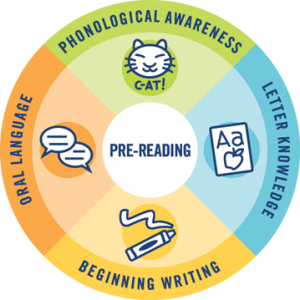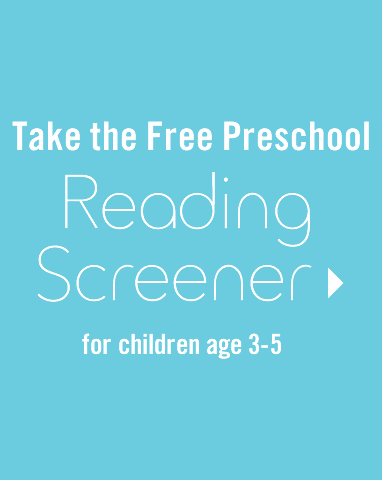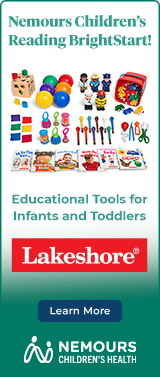 Although all children develop at their own pace, there are reading readiness skills that children commonly develop based on their age. Knowing what to look for not only helps you follow their development, it can alert you to any reading skills that may need extra attention.
Although all children develop at their own pace, there are reading readiness skills that children commonly develop based on their age. Knowing what to look for not only helps you follow their development, it can alert you to any reading skills that may need extra attention.
Oral Language
Oral Language includes the ability to understand spoken language and speak clearly to communicate with others. Developing your child’s oral language skills increases his or her vocabulary and speaking skills, contributes to comprehension and enjoyment of reading, helps your child relate stories in books to his or her own experiences and builds listening and attention skills for school.

Letter Knowledge
Letter knowledge includes recognition and naming of letter names and letter sounds, along with a general understanding of how print and pictures are processed differently. Learning letters is challenging for young children - they need to learn, over time, to look at letters and listen to letter sounds differently and very carefully.

Phonological Awareness
Phonological awareness is a specialized type of listening skill that is necessary for children to learn to read. Being able to identify and play with these word parts is essential for future success with phonics. Starting around age 3 or 4, your child will begin to show increasing skill at playing with words by changing sounds or syllables.

Beginning Writing
Beginning writing includes fine motor skills and eye-hand coordination for controlling writing tools, understanding that we can show our thoughts through drawing and writing, and writing letters that represent sounds in words. Learning to read and write are interrelated skills that develop in stages.

![]() Although all children develop at their own pace, there are reading readiness skills that children commonly develop based on their age. Knowing what to look for not only helps you follow their development, it can alert you to any reading skills that may need extra attention.
Although all children develop at their own pace, there are reading readiness skills that children commonly develop based on their age. Knowing what to look for not only helps you follow their development, it can alert you to any reading skills that may need extra attention.








